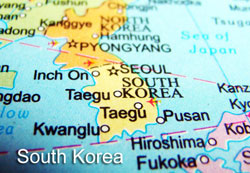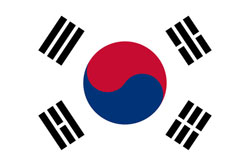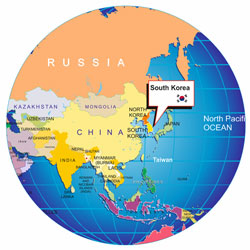Asia
Atlas
Worldmap
Earth
Making of World Map
World Map
Physical World Map
Political World Map
World Outline Map
Symbol of geography
Tool of map making
Air Route
Agriculture map
Annual Rain fall
Big Business
Continents Map
Earthquake danger zone map
Fisheries
Forest Map
Geology & Soil
Global Warming
Gold mine map
Hotels of World
Language
Literacy
National Parks and wirldlife
Natural Resources
Sea Route
Thematic maps
Temperature and Pressure
World rivers maps
University of World
World Newspapers
World Climate
World Environmental issues
World endangered species
Water
Others
History of World Map
America
Balkan States Map
Baltic States Map
Birds populated areas
Bio-geographical regions or Biomes
Central America Political Map
Commonwealth States map
Desert Map
Indus Valley Civilization (Harappan)
Language Stats
Mountain Range Map
Pacific Ocean Map
Tiger Population map
Sea Animals
Top Ten Countries
UK Political Map
Wildlife Density
7 wonders of the world
Where is?
Where is Asia?
South korea
South Korea | Flag South Korea | Map South Korea | Where is South Korea?
Since its division, South Korea has emerged as one of the world’s largest economies. The contrast with its other half is quite obvious. Subsequent to the Russo-Japanese War in 1905, Korea became a protectorate of Japan whose imperialistic ambitions were evident. In 1910 it was incorporated as a colony.
Korea achieved its independence following Japan's defeat at the hands of the US during the World War II. After World War II, Korea was portioned into the South and North. The Korean War (1950-53) divided the world with US soldiers and UN forces fighting alongside South Korean troops while North Korea being supported by the forces of China and the Soviet Union. In 1953 an armistice was signed. Since then South Korea has made rapid strides on economic front. Family-owned industrial conglomerates were encouraged. Thus came into being the Hyundai and Samsung groups that made their presence felt in the world.
The following 32 saw military rule in Korea. They year 1987 saw the restoration of a multi-party political system and KIM Young-sam became South Korea's first civilian president in 1993. In June 2000, a historic event took place when the South's President KIM Dae-jung and the North's leader KIM Jong Il met at the first North-South summit.
Travel overview
The first impressions of a tourist visiting will be of a fast-developing
and prosperous country. It is a modern, industrialized nation. But it
is also, to an equal extent, a mountainous country.
Of all Korea’s cities, it's perhaps Seoul which exerts the most
compelling fascination. There are lots to see here. You could spend
a month in South Korea and still only scratch the surface. Tourist attractions
in South Korea include Seongnamsa temple the multistoreyed pagoda and
bamboo trees. The 48-columned Gyeonghoeru pavilion is an architectural
marvel. For rustic experience visit the Korean Folk Village, full of
artisans' workshops, a Buddhist temple and market place. Skiing and
other winter sports are practised avidly in the mountains of South Korea
such as the Songnisan. The Manghyangbong peak is also popular with tourists
in South Korea.
Capital: Seoul
Location: Eastern Asia, southern half of the Korean Peninsula bordering
the Sea of Japan and the Yellow Sea
Climate: temperate, with rainfall heavier in summer than winter
Total Area: 98,480 sq km
Total Population: 49,044,790
Population Growth Rate: 0.394%
Sex Ratio: 1.01 male(s)/female
Literacy: 97.9%
Ethnic Groups: homogeneous
Irrigated land: 8,780 sq km
Languages: Korean, English
Time Zone: UTC+9
Currency: South Korean won (KRW)
Neighbouring countries: North Korea 238 km
Type of govt.: republic
Head of Govt.: Prime Minister HAN Duck-soo
Major Political Parties: Democratic Labor Party or DLP , Democratic
Party or DP , Grand National Party or GNP , People-First Party or PFP
, Uri Party
Participation in International Organizations: AfDB, APEC, ASEAN , APT,
ARF, AsDB, Australia Group, IADB, IAEA, IBRD, BIS, CP, EAS, EBRD, FAO,
ICAO, ICC, IFAD, IFC, IFRCS, IHO, ILO, ICCt, ICRM, IDA, IEA, IMF, IMO,
Interpol, ITU, ITUC, LAIA, MIGA, IOC, IOM, IPU, ISO, NEA, NSG, OECD,
ONUB, OPCW, OSCE, SAARC, UN, UNCTAD, PCA, PIF , UNESCO, UNHCR, UNIDO,
UNOMIG, UNWTO, UPU, UNMIL, UNMIS, UNMOGIP, WCL, WCO, WTO, ZC, WHO, WIPO,
WMO
Major Agricultural Products: rice, root crops, fruit, cattle, barley,
vegetables, pigs, chickens, fish, milk, eggs
Natural Resources & Minerals: coal, tungsten, graphite, hydropower
potential, molybdenum, lead
Industry & Transport: electronics, chemicals, telecommunications,
automobile production, shipbuilding, steel
Airports: 38
Railways: 3,472 km
Roadways: 100,279 km
Waterways: 1,608 km
Major Trade Partners: China, US, Japan, Hong Kong, Japan, Saudi Arabia
Exports: $326 billion
Imports: $309.3 billion



